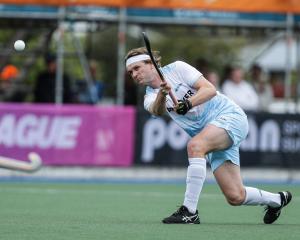

That is because I doubt I would have been allowed to have a cellphone, another thing to add to my lack of coolness along with being a fat, frizzy-haired frump and not wearing the right clothes in the right colour.
My father, a man who loved to have a yarn because we lived up a country valley where he could go for days without talking to anyone outside the family, was strangely reticent on the phone.
He did not live long enough to encounter cellphones, but I cannot imagine him seeing the need for teenage me to have one.
Our home phone was a rotary one on a party line. We knew the call was ours when we heard a long-short-short ring, since our number was 18D — D in morse code is long-short-short.
When I was living away from home and longing to hear Dad’s voice, it was difficult to grasp the significance of his awkward staccato telephone responses.
I am not sure whether he regarded the telephone as technology which was a poor relation to the joy of conversing in person, was afraid calls would bring bad news like the one about the death of my mother at the age of31, or that he worried talking too long would rack up a big toll-call bill.
When I went to boarding school, I had no idea how to use the high-tech dial phones used in Nelson then. Not that we were encouraged to phone home.
We had to get permission for making a call and had to do it in the matron’s office.
That has changed now. Cellphones are on the list of "items to bring" for boarders.
The information for boarders (which could do with a good edit) says: "We encourage the girls while in the dining room, they do not use their cellphones as mealtimes are a time to connect with other students".
Does that waffle mean cellphones are banned in the dining room?
Pupils in years 7 to 11 must hand in their "technology" to staff before bed and it is locked away for the night. I assume that is talking about cellphones, but perhaps it means any other electronic device such as laptops.
In the morning, bedrooms are checked to ensure they are clean and tidy. If not, pupils "will not get their technology back that day".
It seems cellphones are allowed in the school itself, but the cellphone procedure I could find online was not clear what "students informed about expectations of cellphones" meant.
But if someone was using a phone in class "inappropriately", there were a series of warnings and consequences which could involve meetings with the dean and home contact.
It might culminate in the phone having to be locked up in the dean’s safe for five days, or leaving the phone at home.
Good grief. What a waste of everyone’s time.
It surprises me more schools have not had the gumption to impose more rigorous restrictions on cellphone use already, rather than wait for the government to act on this.
It will be interesting to see, once the ban comes in, how much it might reduce bullying and levels of anxiety but increase teenagers’ physical activity and ability to talk to one another, since it seems the ban is to apply at break times.
Hopefully, there will be some flexibility for schools to be able to use them in class if it is relevant to study.
Young people will still need to learn how to use their smartphones wisely, something the adults around them might need some help with, too.
So far, I have resisted owning a smartphone, much to the derision of some family members.
It has spared me being inflicted with nomophobia (a risky word if you are inclined to miss-hit when stabbing out a text message). That is anxiety about not being connected to the digital world ("no mo" meaning "no mobile") or separated from your cellphone.
I survive with a burner phone, which has saved the world from my silly selfies and photos of my Vegemite on toast.
Since I have a laptop, I can waste a lot of time looking at rubbish on the internet on that, but I can avoid it when I am out for a walk or sitting in a cafe.
When I see people constantly checking their phones in such settings, even when they are with others, I wonder what they are looking at which is so important it takes precedence.
I will never be cool enough to know.
- Elspeth McLean is a Dunedin writer.












